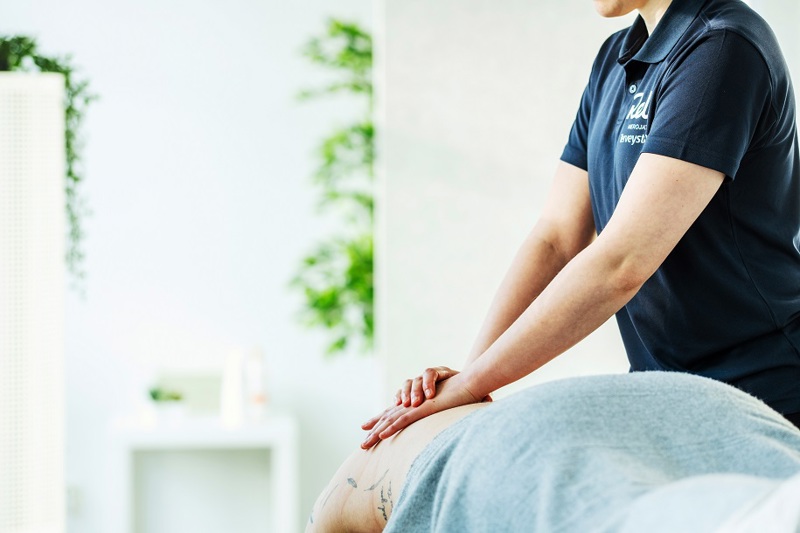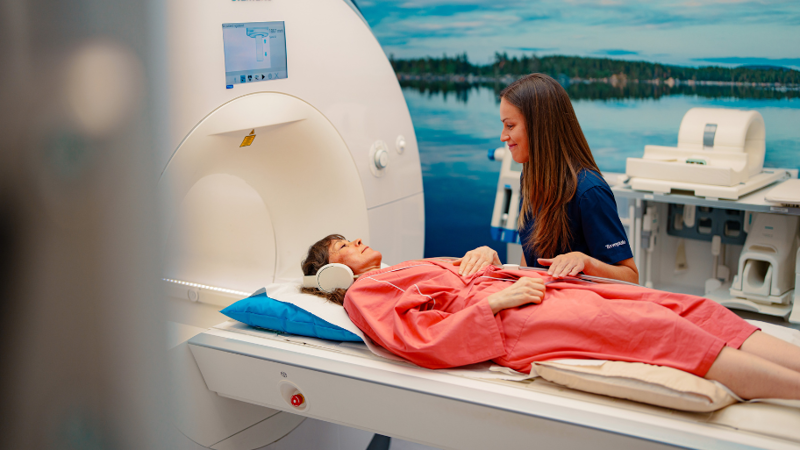A mind-friendly and brain-healthy holiday - how to recover and recharge your batteries?
Many people start their summer holidays after Midsummer. For a holiday to soothe your mind, take a look at Terveystalo's occupational health psychologist Tiina Tuominen's tips for a restorative holiday.

In today's world, the brain is constantly overwhelmed by information: phones ringing, emails ringing and schedules full of meetings. Information workers, in particular, are constantly on call, putting a strain on the frontal lobes - the parts of the brain responsible for decision-making, planning and emotional regulation. This strain often results in slowdowns and mistakes at work that you may not notice in time.
That's why holidays are so important for your brain health - but just taking a few days off is not enough. A restorative and mind-friendly holiday requires planning and active choices that support the well-being of both mind and body.
"It's good to remember that the holiday experience is not just the responsibility of the individual," says Tiina Tuominen, the occupational health psychologist at Terveystalo.
"Work communities - and especially frontline workers - have an important role to play in ensuring that employees' holidays and the transition to holiday enable them to recover. This means talking openly about the importance of holidays and, above all, planning sufficiently in the workplace to ensure that excessive work pressures do not build up during holidays, waiting around the corner when the holidaymaker returns to work. It's also worthwhile for front-line staff to stop and think about how they can break away from the hustle and bustle of spring and give themselves permission to rest," Tuominen continues.
Holidays start when the mind takes a breather - not when the calendar clears
You shouldn't rush into a holiday like a last meeting - sweaty, hungry and half-way through your thoughts. Instead, if at all possible, it's best to take it easy.
"The stress hormone cortisol keeps the body alert, but when levels remain consistently high, the brain starts to suffer. The hippocampus - the centre of memory and learning - can even shrink under long-term stress. During a holiday, stress reactions subside and the nervous system is allowed to rest," says Tuominen.
She points out that the body calms down when we spend time with people who are important to us. A moment of hugging, a shared meal or a deep conversation can restore more than any holiday destination.
"We all have a built-in longing for connection. Strong social relationships aren't just a nice-to-have - they're a pillar of brain health. Research shows that meaningful relationships reduce the risk of depression and anxiety, support immunity and even extend lifespan.
A restorative holiday = a balanced holiday
Sometimes we think of a holiday as slacking off. While relaxation and nap-tinted days are often a great way to start a holiday, a good holiday for the brain also has curiosity-inducing elements.
"While lounging in a hammock is lovely, the brain loves curiosity. The brain has a reward system that releases dopamine when we experience something new and exciting. When we're on the edge of something new, we're forced to observe more closely, so worrying and overthinking become less of a problem. This is also a form of recovery," says Tuominen.
A balanced holiday includes time for yourself and meaningful activities, but also flexibility and consideration for others.
"Holidays often involve scheduling and the need to accommodate the different wishes of family, friends or family members. It is important not to forget yourself in the cross-fertilisation of wishes," Tuominen reminds.
"The first responders are available almost every weekday of the year. That's why taking a holiday - and putting your own well-being first - often requires a conscious change of perspective," she continues.
For the brain, a relaxing holiday is not about perfect plans - it's about grace, flexibility and the belief that everything will work out
There is no holiday or life without surprises: a rainy day at a beach resort, a cancelled flight, a bad dinner. But for the brain, it's not whether everything went according to plan - it's how you react when it doesn't. Our brains have evolved to cope with changing and unpredictable situations. This ability - resilience - is part of being human. It is not just a personality trait, but a functional strength of the brain.
"Our brains have evolved to adapt to changing situations. A fully anticipated holiday is not necessarily the most restorative for the brain, and small surprises and life events do not affect brain health," says Tuominen.
Five steps to a restorative holiday
1) Take a conscious break from work
Go on holiday gradually. Plan a lighter week before the holiday, avoid meetings and start to detach yourself consciously. This will help activate the parasympathetic nervous system - the body's own recovery system.
2) Cohesion and meaningfulness
When we spend time with people who are important to us, the body calms down. A hug, a shared moment or a laugh with a friend can be more effective than any expensive holiday destination. At the same time, we can reflect on the things that matter most to us in this life - and how we can bring these elements into our holiday, and how they can be reflected in our everyday lives after the holiday.
3) Skill management and new experiences
Whether it's a new food recipe, a trip to an unfamiliar place or reading an inspiring book, new stimuli stimulate the brain's neural networks and increase pleasure.
4) Autonomy and balance
Everyone has a need to do things on their own terms. On holiday, this can mean having the courage to express your own wishes or needs, even if they differ from those of others. A balanced holiday includes time for oneself and meaningful activities, but also flexibility and consideration for others.
5) Resilience - resilience and faith in the future
When we face and adapt to challenges, we make particular use of the forebrain cortex, which is responsible for judgement and emotional regulation, and the amygdala, which assesses threat situations. Resilience is the ability to adapt, flex and maintain hope for the future. It is an important skill that is also strengthened during holidays, when we learn to embrace life's contingencies.
Read more occupationa health articles

How technology helps relieve mental stress: "When the load is high, the threshold must be low."
Mental health disorders have overtaken musculoskeletal disorders, which had long been the leading cause of sick leave. Work is changing, and the range of sick leave caused by mental health issues has also changed. We must be able to offer new solutions to this challenge.

Extensive data set of 200,000 samples: Nightingale study reveals link between illness risks and sick leave
Data from the Finnish Nightingale study, which is used in Terveystalo's occupational health services, reveals a clear link between lifestyle-related health risks and sick leave. The exceptionally extensive data set of over 200,000 customers shows that people with a low risk of illness had significantly fewer absences, while those in high-risk groups had more absences. The results highlight the importance of preventive healthcare in ensuring work ability and the competitiveness of companies.

Strong identification speeds up your service experience when calling us
Soon you can identify yourself easily and securely before your call is answered. Read below to see how the identification process works.

Terveystalo's digital services have been awarded the internationally recognized ISO27001 information security certification.
Terveystalo's information security practices, processes, and risk management are in line with international best practices.

Does massage help relieve stress? – Touch restores and calms the body and mind
Stress is not always visible on the outside, but the body does show signs when the strain increases. According to Lassi Ylönen, a trained massage therapist at Terveystalo Rela, the body often communicates stress through subtle signs.

Circular economy and artificial intelligence boost performance and improve care
At the heart of sustainable healthcare, technology serves as a tool for improving both the quality of care and accountability. Terveystalo favors solutions that combine sustainability, cost-effectiveness, and medical expertise.